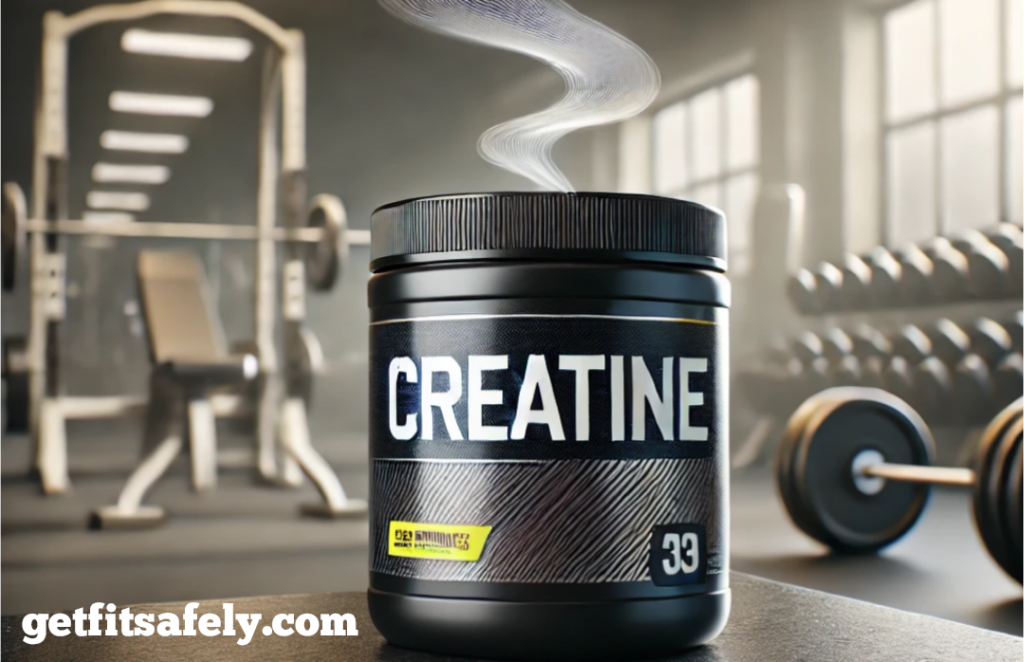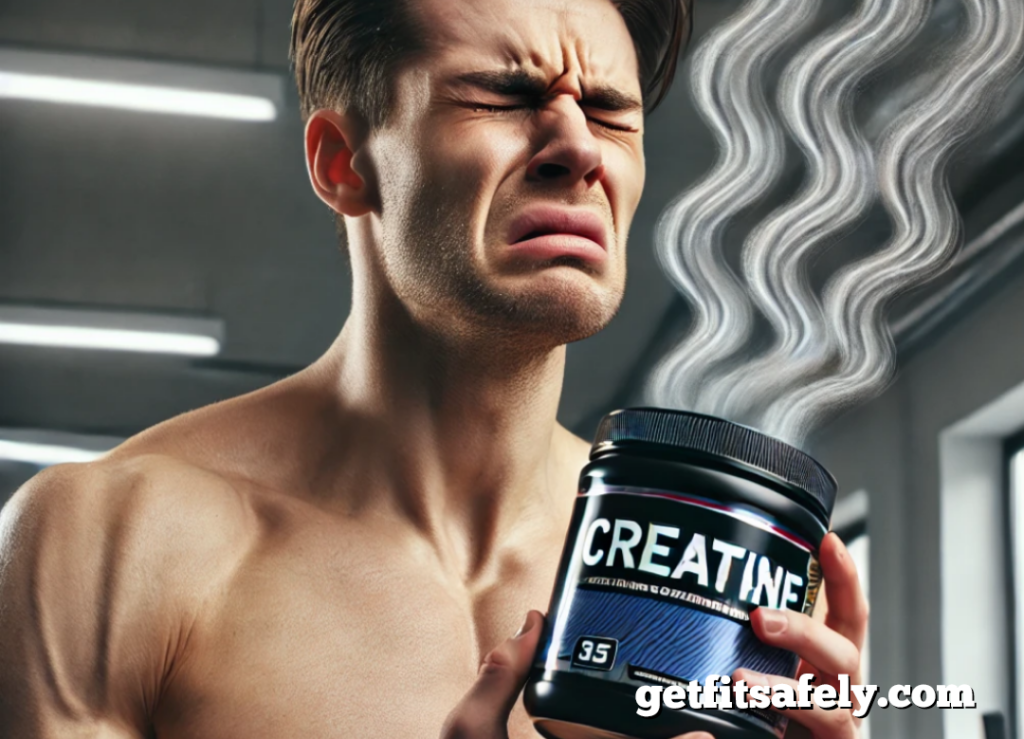So, you’ve just opened a new tub of creatine and—yikes, what’s that smell?
It’s understandable to be caught off guard, but you’re not alone.
A lot of people notice an unexpected odor when they first open thecreatineir creatine, but here’s the thing: itself is usually odorless.
Sometimes, we might be more sensitive to any scent when we expect none at all.
However, it’s important not to jump to conclusions.
Let’s dive into why creatine might have a funky smell and whether it’s something you need to worry about.
| 😕 Reason | 🔍 Explanation |
|---|---|
| Chemical Composition | Creatine itself has a distinct odor that can be off-putting to some. |
| Breakdown Products | When creatine breaks down in water, it can produce creatinine, which has a stronger smell. |
| Mixing Ingredients | Other supplements or flavorings added to creatine can sometimes clash, creating a less pleasant aroma. |
| Storage Conditions | Improper storage can cause creatine to degrade, intensifying its smell. |
| Brand Variations | Different brands use varying purities and additives, which can affect the scent. |
Is It Safe to Use Smelly Creatine? The Science Behind the Odor

Let’s be real—creatine is a game-changer for your workouts, but that smell?
Not so much.
The truth is, creatine itself doesn’t have much of a scent when it’s fresh.
But here’s where it gets interesting (or unpleasant, depending on how you look at it).
When creatine gets exposed to moisture, it starts breaking down into something called creatinine.
Creatinine is the culprit behind that slightly funky smell you might notice when you open your tub.
This breakdown can happen more quickly if your creatine is stored in a humid environment or if it’s been sitting around for a while.
If you live in a place with high humidity, you might notice the smell sooner than someone who keeps their creatine in a cooler, drier area.
Now, I know what you’re thinking:
“Does this mean my creatine is going bad?”
Not necessarily.
The smell doesn’t automatically mean your creatine is unusable.
It’s just a sign that the product has been exposed to conditions that speed up the natural breakdown process.
I find that as long as my creatine isn’t past its expiration date and hasn’t changed color or consistency, I’m good to go.
How to Keep Your Creatine Fresh and Odor-Free
Personally, I’ve never had any problems with it, but I’ve seen people on forums mentioning strange smells, even comparing them to fish or eggs.
Honestly, I find that a bit disturbing.
From what I know, to prevent creatine from deteriorating, it’s essential to store it in a cool, dry place.
I also make sure the lid is alays tightly closed.
This helps minimize exposure to moisture, which is the primary cause of deterioration.
If everything checks out, I go ahead and use it without worry.
What Can You Do About It?
While I’ve been lucky so far, I don’t think there’s a magic fix to eliminate the smell once it’s there.
But don’t worry—you can take steps to minimize it.
One thing I find very helpful is transferring my creatine to an airtight container.
This helps lock out moisture, which is a big culprit in causing that odor.
Another trick?
Toss in a silica gel packet to absorb any excess moisture that might sneak in.
I’ve also learned the hard way that letting creatine sit around too long isn’t a great idea, since it can start to form clumps.
If possible, try to finish your supply within a reasonable time frame.
The longer it’s stored, the more likely it is to develop an odd smell, too.
Why Choose Creatine Monohydrate?
I’ve been in the supplement world for quite a while.
Out of everything I’ve tried, creatine monohydrate has given me the most satisfying results.
It’s been key to maximizing my workouts and seeing real progress.
It’s backed by tons of research—no fluff, just results.
We’re talking about real gains in strength, muscle mass, and workout performance.
What’s great about creatine monohydrate is that it’s not trying to be flashy.
It’s just pure, straightforward creatine that does the job.
No weird ingredients, no over-the-top promises—just the good stuff.
And the price?
Let’s just say it’s easy on the wallet, which means more money for post-workout snacks (because we all know how important those are).
The best part?
It’s super easy to work into your routine.
No fancy mixers are needed—just toss it in your drink, stir it, and you’re good to go.
I’ve seen what it can do, and let me tell you, the difference is real.
Powder or Capsules: Which Creatine is Better?
It’s like choosing between pizza and tacos—both are great, but which one’s going to hit the spot for you?
Let’s talk powder first.
Creatine powder is easy to mix into your favorite beverage and usually gives you more bang for your buck.
Plus, if you enjoy the whole ritual of shaking up your pre-workout drink, powder’s got you covered.
Just scoop and mix, and you’re ready to crush that workout.
And let’s be real, there’s something satisfying about watching the powder swirl into your drink like some kind of magical fitness potion.
Now, capsules—they’re versatile too, especially for the no-nonsense type.
If you’re always on the move or just don’t want to deal with scoops and shakers, capsules are the way to go.
Quick and easy—grab a few, and you’re all set.
It’s like the fast food of supplements, but, you know, actually good for you.
The capsules are also a lifesaver for those who don’t like the taste of the powder.
So, which is better?
If you’re into mixing things up (literally), go with the powder.
But if convenience is your thing and you like to keep things simple, capsules are your best bet.
In the end, both will get the job done, so pick your favorite and stick with it.
Your muscles won’t know the difference, but they’ll thank you either way.
RELATED:>>> Will You Lose Strength and Muscle After Stopping Creatine?
Bottom Line
Creatine doesn’t usually have a strong smell.
Just make sure to store it in a cool, dry place with the lid on tight to avoid any funky surprises.
Check the expiration date, too.
If it looks or smells off, don’t hesitate to reach out to the manufacturer—they might replace it for you.
Now that you know why creatine can sometimes get smelly, you’re all set to keep it fresh and avoid any issues when you open the tub.
FAQS
Can You Take Expired Creatine?
If your creatine expired a few months ago, it’s probably still okay to use, though it might not be as effective. But if it’s been sitting around for over a year past the expiration date, it’s better to get a new supply. Creatine can lose its potency over time, so for the best results, stick to fresh products.
Can Mixing Creatine with Certain Liquids Cause It to Smell Bad?
Yes, certain liquids, especially acidic ones like citrus juice, can change creatine’s smell. It’s best to mix creatine with water or a neutral liquid to avoid any unusual odors.
Should I Be Concerned if My Creatine Smells Like Fish?
A lot of people notice a fishy smell in their creatine, and while it’s not pleasant, it’s usually not a big deal. This odor often comes from moisture exposure. As long as your creatine is within its expiration date, isn’t clumpy, and hasn’t changed color, it’s probably safe to use.
Does the Brand of Creatine Affect Its Smell and Texture?
Yes, different brands can vary in smell and texture due to differences in processing and ingredients. If you’re sensitive to these factors, try different brands to find the best fit.
Why Does My Creatine Change Texture Over Time?
Creatine can clump or change texture due to humidity or temperature changes. This doesn’t usually affect its effectiveness, but storing it in a cool, dry place helps maintain its texture.
Can I Still Use Creatine If It’s Been Stored in a Warm Environment?
Creatine stored in a warm environment might lose some potency, but it’s generally still safe to use. In the future, store it in a cooler place to keep it at its best.





